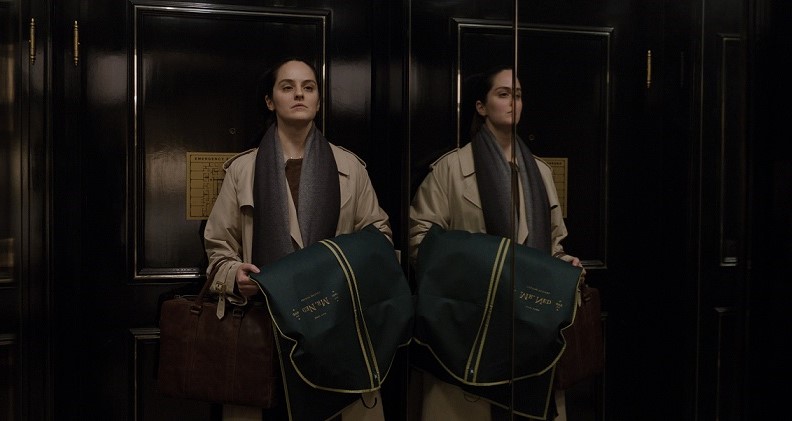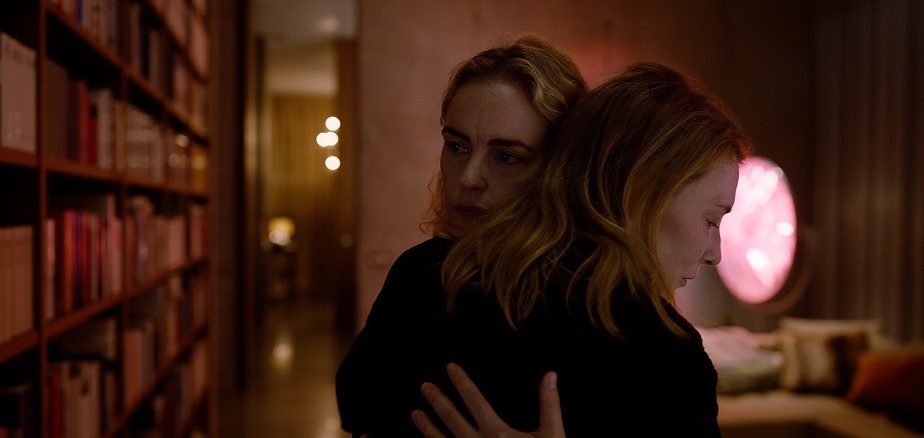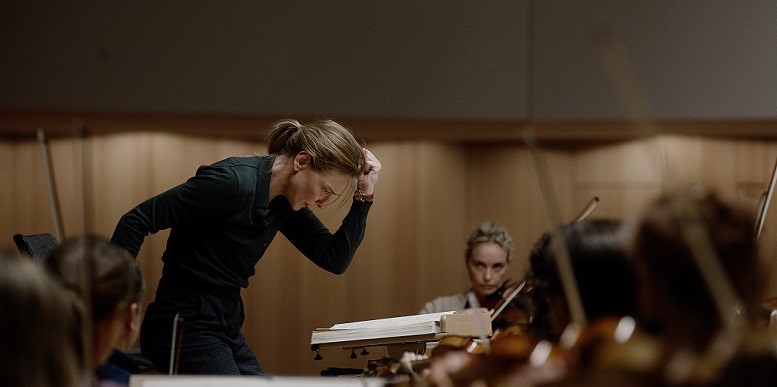
Running Time: 158 minutes
This film from Focus Features opens in San Diego on October 21st. It opens everywhere October 28th.
Most Hollywood films feature stories about a proactive hero stepping forward and overcoming great odds to either save the world or improve themselves. Occasionally, an independent title arrives that does something considerably different. Tár is one of those kinds of movies. It’s a beautifully performed character piece, but also one that moves at an almost glacial pace. The wait is a long one and once tension does arrive the movie becomes exciting, but average moviegoers (and to a degree, this reviewer) may find the slowness too much to endure.

Lydia Tár (Cate Blanchett) is a famous conductor and composer adored by classical music fans, while also breaking barriers as a woman leading the Berlin Philharmonic. As she prepares for a career-defining public performance of Mahler’s 5th Symphony, viewers witness some extremes in her personality. She commands attention and is brusquely opinionated in all matters regarding music and her work. Naturally, this causes plenty of problems in both her professional and personal relationships, particularly with assistant Francesca Lentini (Noémie Merlant) and wife Sharon Goodnow (Nina Hoss) who also performs in the Berlin Philharmonic. As stress rises and the big day approaches, allegations about her past are raised and the conductor comes under scrutiny from those around her.

For the first hour or more, we see Tár traveling extensively to be interviewed and even serve as a lecturer at a university. Some sequences examine her working relationship with the orchestra and approach to interpreting classical music in her own way. While many of her arguments are astute and compelling, the character is also arrogant and manipulative in many ways, with her devoted but put-upon assistant often covering for her employer’s bad behavior. The music theory discussed is interesting, as are some conversations and ideas relayed. Lengthy master takes are used and conversations are captured in a naturalistic way that doesn’t always deal with plot specifics. In fact, were it not for the polished photography, this all might come across as a documentary on a real person.
It’s convincingly portrayed, but there is a negative side to holding for extended periods of time and not getting to the meat of the story. Some of the discussions do feel overly extended and slow the pacing down. Tár’s lecture is impressive in that it is all shot in a single take that must run at about ten minutes. But the relevant information could have been choreographed and delivered in a more concise manner (it is reused, but not everything addressed in the lecture is necessary). When this scene is followed by other lengthy conversations, it does begin to feel exhausting.

Thankfully, things do slowly build to overtly dramatic situations in the latter sections of the picture. When the pressure begins to take an effect on the usually collected Tár for very real and nasty (as well as invented) offenses and her world begins to crumble, it all becomes much more intriguing. And Blanchett is exceptional in the film throughout, managing to keep viewers watching during her regular work schedule, before she really gets to display the egotistical character losing control of her own life narrative and cracking in a memorable way under the incredible strain.

When conflict was introduced into the story, this reviewer appreciated the story. As things come to a head, it is fascinating to see exactly what happens next and whether Tár will survive the storm or face a big comeuppance. However, it takes a great deal of patience on the part of the viewer to get to this point in the film. It just managed to pull me in, but many viewers understandably won’t be able to relate to the less-than-charming central figure and find the running time too long to wade through. In the end, the opening beats of Tár are too slow to generate much excitement, but it does somehow manage to end on a memorable note.


